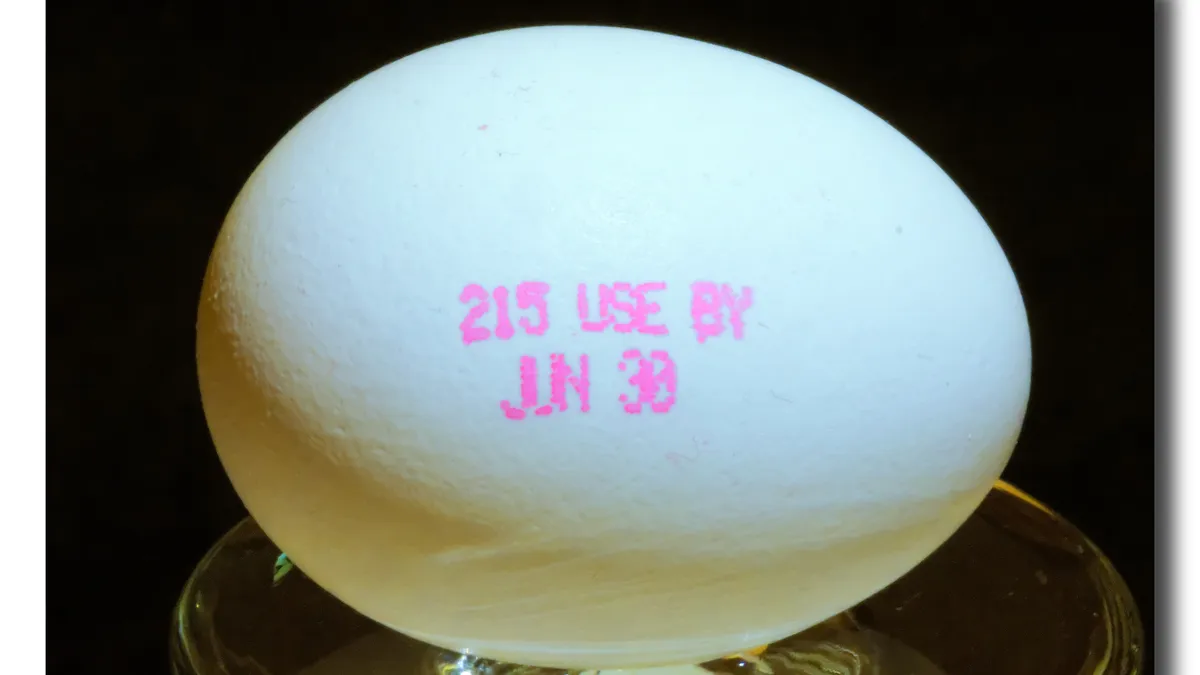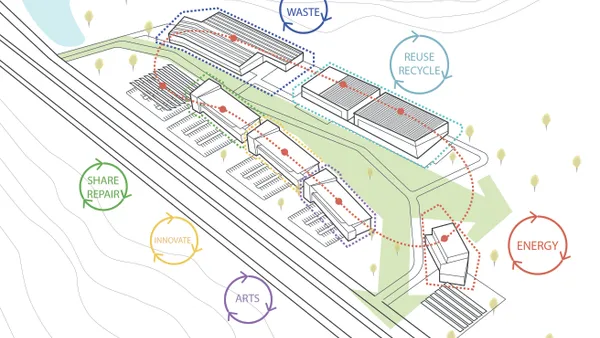Dive Brief:
- The U.S. Department of Agriculture’s Food Safety and Inspection Service (FSIS) has issued new information on food product date labeling that includes guidance aimed at reducing waste. The agency is now recommending that manufacturers use the language "best if used by."
- This change was driven by research which said the language communicates to consumers that the label is about quality rather than safety.
- "In an effort to reduce food loss and waste, these changes will give consumers clear and consistent information when it comes to date labeling on the food they buy," said Al Almanza, USDA Deputy Under Secretary for Food Safety, in a press release. "This new guidance can help consumers save money and curb the amount of wholesome food going in the trash.”
Dive Insight:
Earlier this year, the FSIS made changes to regulations around minor labeling errors and food bank shipments to increase donations but the implications of this guidance could be much larger. ReFED has estimated that confusion over date labels could account for nearly $29 billion of wasted consumer spending and 20% of consumer organic waste. Recent research from Auburn University and Cornell University found that consumers may be more willing to waste food depending on label language. Other research has also found that many consumers link date labels to the concept of food safety even though that isn't the case for any products except infant formula.
Ongoing work by the Natural Resources Defense Council, Harvard Food Law and Policy Clinic, Feedback and many others has helped bring this issue to the forefront in recent years. The House Agriculture Committee held its first hearing on food waste this spring, including discussion of a bill proposed by Rep. Chellie Pingree that would standardize labeling language, and major manufacturers have expressed their support. Wal-Mart has even announced that it will begin using standardized labeling on its store-brand products.
Yet despite all of this attention, the path to widespread implementation has remained elusive. While the U.S. has a 2030 food waste reduction goal it hasn't outlined the types of detailed steps seen in Canada or the European Union when it comes to date labels. A potential 2019 farm bill was seen as one of the best options for Congress to codify this language, though many in the food world have cautioned that this is far from a guarantee. This new USDA guidance may not be binding but it is a concrete policy recommendation that could help move more companies along on this issue.















